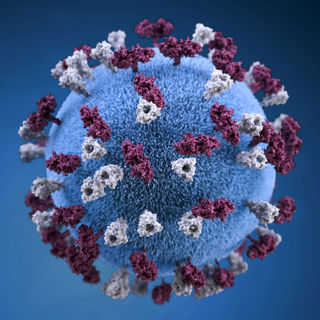Coronavirus Disease 2019
Research Suggests a Link Between Vitamin D Deficiency and COVID-19 Deaths
A study in Indonesia has detected this association.
Posted May 5, 2020 Reviewed by Abigail Fagan

Vitamin D is critical to healthy psychological functioning. Research has shown that vitamin D deficiencies may be related to depression, seasonal affective disorder, and other psychological illnesses.
New research goes further, implicating vitamin D deficiency in the fight against COVID-19.
A team of Indonesian researchers led by Prabowo Raharusuna released a working paper showing a significant association between COVID-19 deaths and vitamin D insufficiency or deficiency in a sample of 780 laboratory-confirmed cases of SARS-CoV-2.
"This study focused on identifying patterns of mortality among patients infected with COVID-19 and the possible association between serum 25(OH)D [vitamin D] levels and mortality outcomes," state the researchers.
The key findings are as follows:
- A majority of COVID-19 cases with vitamin D deficiencies died.
- The odds of death were higher in older and male cases with preexisting conditions and lower than normal Vitamin D levels.
- When accounting for the effects of age, sex, and comorbidity, vitamin D status is strongly related to COVID-19 mortality.
This research adds to a growing body of scientific literature linking vitamin D to COVID-19 severity. A recent report released by Mark Alipio of Davao Doctors College in the Philippines found that normal vitamin D levels were more likely to be observed in patients with mild cases of COVID-19. To be specific, he estimated that normal vitamin D levels increase the odds of having a mild clinical outcome by approximately 19.6 times.
Raharusuna's study reached a similar conclusion. The scientists estimate that the mortality odds in their sample increase by a factor of 13 for patients who are vitamin D insufficient and 19 for patients who are vitamin D deficient. Moreover, controlling for other effects known to influence COVID-19 mortality rates such as age, gender, and preexisting conditions, the researchers find that vitamin D-deficient patients are still 10 times more likely to die from the disease. By some estimates, over a billion people worldwide are deficient or insufficient in vitamin D.
The authors conclude, "When controlling for age, sex, and comorbidity, Vitamin D status is strongly associated with COVID-19 mortality outcome of cases. Randomized controlled trials are warranted to investigate the role of vitamin D supplementation on COVID-19 outcomes and to establish the underlying mechanisms."
The researchers make clear that their findings are part of an ongoing research effort and the data may be subject to change. Nevertheless, the relationship between vitamin D and COVID-19 continues to be of interest to the scientific community as a possible way to effectively mitigate or treat the disease.
References
Raharusun, Prabowo and Priambada, Sadiah and Budiarti, Cahni and Agung, Erdie and Budi, Cipta, Patterns of COVID-19 Mortality and Vitamin D: An Indonesian Study (April 26, 2020). Available at SSRN: https://ssrn.com/abstract=3585561


